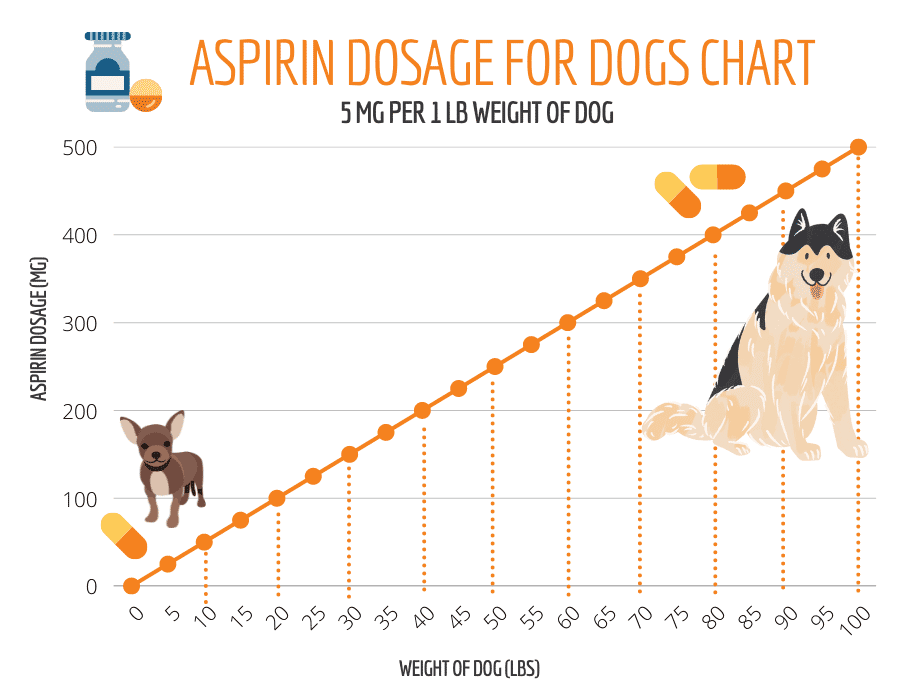Aspirin For Dogs: Side Effects, Safety Precautions, Dogs & More
When you purchase through links on our site, we may earn a commission. Here’s how it works.
We all hate to see our furry friends suffering from pain. Turning to our medicine cabinets for fast and easy relief for minor aches can be tempting. But the resounding advice from veterinarian and pet experts say DO NOT give your pet aspirin or any other human over-the-counter (OTC) pain relievers without consulting your vet. Does that mean that aspirin is bad for all dogs?
Table of Contents
Not in some cases, but you should understand the potential side effects, which dogs are at a higher risk for severe complications, and what can happen to your canine companion if you accidentally overdose. We’ll help you learn more about this potentially fatal OTC pain reliever for dogs.

What Is Aspirin?
Aspirin, or acetylsalicylic acid, belongs to a class of medications called non-steroidal anti-inflammatory drugs (NSAIDs) that are used to reduce pain, fever, and inflammation. Other common NSAIDs that humans use include ibuprofen (Advil, Motrin) and naproxen (Aleve). Unlike other NSAIDs, aspirin also has special anti-coagulant (anti-clotting) properties and is used to treat excessive blood clotting in humans and dogs.
Aspirin and other NSAIDs work by blocking certain enzymes the body uses to make prostaglandins (PGs). PGs have multiple functions in the body, but they also cause inflammation. By reducing the production of PGs, NSAIDs can be quite effective in reducing swelling and associated pain and fever.
Warning: Never give your pets ibuprofen or naproxen. These NSAIDs can be extremely toxic to dogs and even fatal.
Can Dogs Take Aspirin?
Yes, some dogs can take aspirin, but only give your dog aspirin when prescribed by a veterinarian. Some (but not all) vets prescribe aspirin to help relieve inflammation and pain from a variety of conditions in dogs, including osteoarthritis. However, aspirin isn’t approved by the U.S. Food and Drug Administration (FDA) for use in dogs, so its use in dogs is “off label.”
Off-label prescribing in veterinary medicine is fairly common, but it requires a vet’s expertise to determine the appropriate dosage and if the drug is safe for your pup’s current health condition. Aspirin misuse or an overdose can be fatal for our pets. So it’s crucial to follow your vet’s directions with the use of aspirin. The dosage and frequency of use could differ drastically from what’s on the label.
Also, human buffered aspirin has a coating that includes various ingredients that act as an antacid to help prevent an upset stomach and heartburn. Dogs may not be able to digest this buffering efficiently, thus reducing the efficacy of the medicine.
Is Baby Aspirin For Dogs Safer?
Some vets prefer to prescribe baby aspirin for dogs versus adult aspirin due to its lower dosing (i.e., less risk of an overdose). But again, follow your vet’s directions, and don’t give your four-legged friend baby aspirin without consulting your vet first.
Is Aspirin Bad For Dogs?
Aspirin can be especially risky for dogs with certain health conditions. Never give your pup aspirin if she has the following problems.
- Aspirin allergy
- Ulcers
- Bleeding disorders
- Asthma
- Kidney dysfunction or disease
- Liver damage
- Low blood protein
- Cancer
Signs Of Aspirin Toxicity In Dogs
Even healthy dogs can have adverse reactions to aspirin, and many dogs and cats can develop gastrointestinal (GI) bleeding from its use. Aspirin toxicity symptoms can appear soon after ingestion or over time with repeated use. Cats are more prone to serious, life-threatening side effects. If you notice these signs after giving your pet aspirin, contact your vet as soon as possible.
- Lethargy or weakness
- Vomiting
- Diarrhea
- Upset stomach
- Decreased appetite
- Black, tarry stool
- Blood in vomit or stool
- Pale gums
Severe Aspirin Poisoning
High aspirin doses can cause liver or kidney damage and even death. More severe signs include:
- High fever
- Hemorrhaging and ulcers
- Rapid respiratory rate
- Disorientation
- Wobbly gait
- Tremors or seizures
- Collapse
- Coma
If you think you gave your pup too much aspirin without consulting your vet or she ingested another aspirin-laced substance (human topical medications, liniments like Bengay or Icy Hot, a large amount of Pepto-Bismol, etc.), contact your vet or the Pet Poison Helpline at 1-855-764-7661 immediately.
How Is Aspirin Poisoning Treated?
According to the Merck Veterinary Manual, vets should induce vomiting if ingestion is recent and then administer activated charcoal. Vets also typically administer several medications to protect the GI tract and kidneys. If symptoms are severe, your dog may require hospitalization and intensive care such as IV fluids, oxygen, an anti-seizure medicine, blood work to monitor liver and kidney function, and other medications for her symptoms.
What’s A Safe Aspirin Dosage For Dogs?

The typical dosage veterinarians recommend for healthy dogs is 5 mg/lb once or twice daily. We’ve included an aspirin for dogs dosage chart above in case you’re wondering what’s usually considered safe for dogs. But again, always check with your vet before giving your dog aspirin. Your vet’s guidelines could be different from this chart.
Dog Aspirin Dosage Chart
Depending on the size of your canine companion, you could use either baby-strength aspirin (81 mg/tablet) or regular strength (325 mg/tablet). With that said, it can be very hard to manage to get the correct dose for your pup from human tablets (or even aspirin manufactured for dogs). Your vet could provide you with a much easier solution for aspirin dosing.
Aspirin Alternatives For Dogs
Some vets may recommend canine-formulated aspirin that you can find over the counter, but make sure you follow your vet’s dosing directions as they could differ from the product’s recommended dosing. Most veterinarians will prescribe safer pain relievers. NSAIDs specifically made for dogs are quite common and include:
- Rimadyl (generic name novox carprofen)
- Deramaxx (generic name deracoxib)
- Previcox (generic name firocoxib)
- Metacam (generic name feloxicam)
However, these medications can also cause side effects in some dogs. If you’d prefer to avoid pharmaceuticals for your furry friend, some all-natural supplements could be an effective solution. If your pup suffers from joint problems or arthritis, dog joint supplements or Omega-3 fatty acid supplements are popular alternatives. You may also want to consider CBD oil, acupuncture, or massage. Before giving your dog any supplement, you should check with your vet to make sure it’s safe for her specific condition.
What Other OTC Meds Are Safe For Dogs?
You may be wondering if any human medications are safe to give your pup. Yes, some are generally considered safe with your vet’s green light. But see our guide to which OTC medications are safe (and aren’t) for dogs. We include some common brands and dosing guidelines to help with allergies, an upset stomach, minor skin wounds, and more.



